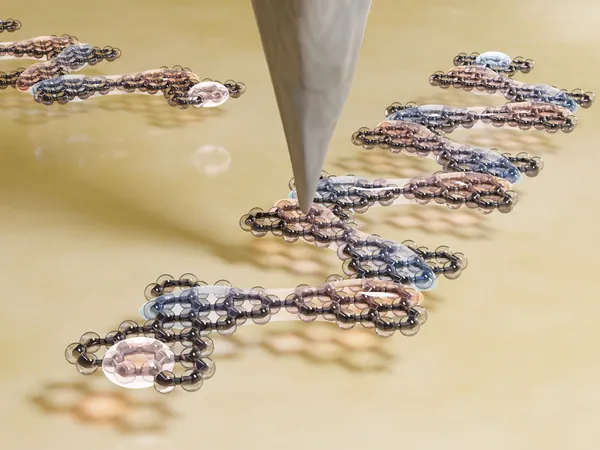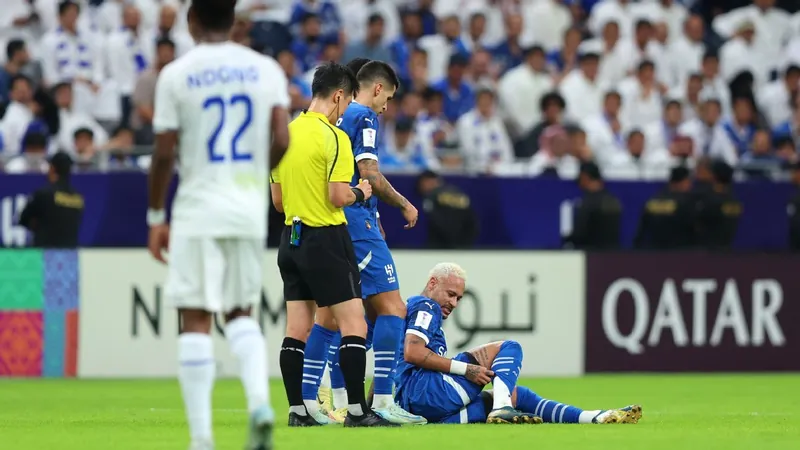
Groundbreaking Research Aims to Alleviate Chronic Pain in Childhood Cancer Survivors
2024-10-28
Author: Li
Introduction
In a significant development in the field of pediatric oncology, researchers in the UK are dedicated to finding effective treatments for chronic pain experienced by many childhood cancer survivors. This groundbreaking study highlights a pressing and often overlooked issue faced by these individuals long after their treatment has ended.
Statistics on Childhood Cancer Survivors
Approximately 80% of children diagnosed with cancer are expected to survive for 10 years or more. However, a staggering statistic reveals that over half of these survivors report experiencing delayed and persistent pain into adulthood. As the medical community advances in treating cancer, the repercussions of treatment—particularly chronic pain—have become a growing area of concern.
Research Initiative by Dr. Richard Hulse
Dr. Richard Hulse, a sensory neurophysiologist at Nottingham Trent University, is spearheading a two-year research initiative funded by the Medical Research Foundation. His research focuses on the pathways through which chemotherapy damages nerve cells responsible for conveying pain sensations. Dr. Hulse emphasizes that while treatments have notably enhanced life expectancy, the ongoing pain following such treatments poses a major challenge for survivors, drastically affecting their quality of life.
Impact of Chemotherapy on Nerve Cells
Chemotherapy, a standard treatment for childhood cancer, has been shown to affect nociceptor cells—nerve endings that detect pain—potentially leading to altered pain perceptions as these patients grow older. Dr. Hulse explained how the body’s immune system typically protects these nerve cells by maintaining their mitochondria—organelles that produce energy for the cells. Unfortunately, chemotherapy can hinder this protective mechanism.
Novel Hypothesis on Mitochondrial Transfer
The Nottingham Trent University team has formulated a novel hypothesis: could transferring healthy mitochondria from unaffected cells to chemotherapy-damaged nerve cells help alleviate pain? Preliminary research suggests that enriching nerve cells with functional mitochondria could rejuvenate their cellular health and curb pain generation. Dr. Hulse stated, "If we can successfully transfer healthy mitochondria, it may pave the way for new therapeutic strategies aimed at enhancing nerve resilience."
Broader Implications of Chronic Pain in Survivors
The issue of chronic pain and inadequate support for cancer survivors extends beyond scientific research. According to a survey by Macmillan Cancer Support, around one in three cancer patients—approximately one million individuals in the UK—have reported that their current challenges are more severe than at any time in recent memory. Furthermore, one in five patients undergoing treatment are grappling with serious physical or emotional issues without receiving necessary assistance.
Call for Systemic Reform in Cancer Care
Steven McIntosh, Chief Partnerships Officer at Macmillan, has voiced concerns about the current state of the UK cancer care system, describing it as “unfair and broken.” He stressed the urgent need for systemic reform and adequate funding in the upcoming budget to bolster the National Health Service (NHS) and enhance support services for cancer patients. "It is categorically unacceptable that access to quality cancer care can vary so dramatically based on demographics and geography," he warned.
Conclusion
As the UK government continues to engage in discussions about the future of the NHS, the voices of cancer survivors must be at the forefront. The impending budget presents a crucial opportunity for meaningful change that could not only tackle current challenges but also lay the foundation for a more equitable cancer care system for years to come.
Stay tuned for more updates on this vital research and its implications for improving the lives of childhood cancer survivors nationwide!



 Brasil (PT)
Brasil (PT)
 Canada (EN)
Canada (EN)
 Chile (ES)
Chile (ES)
 España (ES)
España (ES)
 France (FR)
France (FR)
 Hong Kong (EN)
Hong Kong (EN)
 Italia (IT)
Italia (IT)
 日本 (JA)
日本 (JA)
 Magyarország (HU)
Magyarország (HU)
 Norge (NO)
Norge (NO)
 Polska (PL)
Polska (PL)
 Schweiz (DE)
Schweiz (DE)
 Singapore (EN)
Singapore (EN)
 Sverige (SV)
Sverige (SV)
 Suomi (FI)
Suomi (FI)
 Türkiye (TR)
Türkiye (TR)